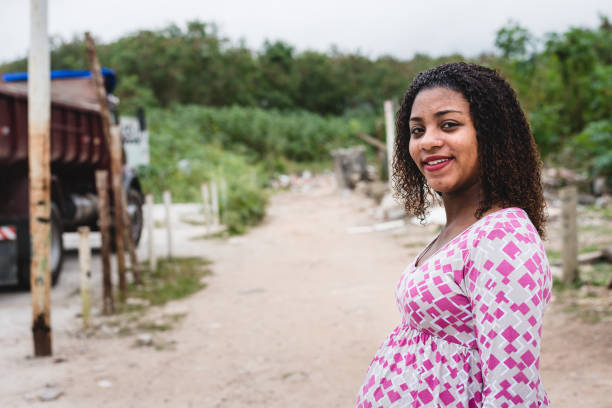The Ripple Effects: 13 Ways Teenage Parenthood Can Negatively Impact Innocent Children
Need Help?
[quform id="1" name="Schools Form"]Introduction
Becoming a parent as a teenager can bring a myriad of challenges that extend beyond the teenage parent themselves. The innocent child born into this situation can experience a range of negative impacts that stem from the circumstances of their parent’s youth and lack of preparedness. This article explores 13 ways in which being a teenage parent could negatively affect the life of the innocent child, with explanations and examples illustrating the potential repercussions.
Table of Contents
13 Ways on How Being A Teenage Parent Could Negatively Impact The Life of The Innocent Child
Being a teenage parent could negatively impact the life of the innocent child through: limited financial stability, inadequate parenting experience, reduced access to education, higher risk of neglect, lack of positive role models, emotional instability, hindered social development, potential family strain, increased risk of poverty, limited emotional support, compromised educational attainment, perpetuation of a teen parenthood cycle, and diminished emotional well-being. These challenges can lead to unmet basic needs, disrupted emotional development, limited educational opportunities, and a higher likelihood of facing similar challenges in their own future.
1. Limited Financial Stability:
Teenage parents often face financial constraints due to their age and lack of stable employment. This can impact the child’s access to basic necessities like nutritious food, proper healthcare, and education.
Example: A teenage parent might struggle to afford quality healthcare for their child, leading to delayed medical treatments and potential health complications.
2. Inadequate Parental Experience:
Teenage parents might lack the necessary parenting skills and experience, leading to suboptimal caregiving and developmental support for their child.
Example: A teenage parent may struggle to address the child’s emotional needs, leading to difficulty in building secure attachment and emotional resilience.
3. Limited Educational Opportunities:
The responsibilities of parenting can hinder a teenager’s ability to pursue education, potentially limiting the child’s exposure to quality early childhood education and developmental activities.
Example: A teenage parent might be unable to enroll their child in preschool programs due to the parent’s own academic commitments or financial constraints.
4. Higher Risk of Neglect:
Teenage parents might struggle with balancing their own needs and those of the child, leading to a higher risk of neglect or inadequate supervision.
Example: A teenage parent may leave their child in unsafe conditions or with unreliable caregivers due to lack of support or resources.
5. Reduced Role Modeling:
Teenage parents might not have had the opportunity to establish a strong foundation for themselves, which can impact their ability to serve as positive role models for their child.
Example: A teenage parent struggling with personal challenges might not exhibit responsible decision-making, affecting the child’s understanding of healthy behaviors.
6. Emotional Instability:
Teenage parents often experience heightened emotional challenges, which can impact their ability to provide consistent emotional support for their child.
Example: A teenage parent grappling with mood swings might inadvertently create an unstable environment for the child, affecting emotional development.
7. Interference with Social Development:
Teenage parents might have limited social networks and interactions, which can hinder the child’s exposure to diverse social environments.
Example: A child raised by a teenage parent might have fewer opportunities to interact with peers, impacting their social skills and adaptability.
8. Potential Family Strain:
Teenage parenthood can strain family dynamics, leading to potential conflicts that negatively impact the child’s sense of stability and security.
Example: Family disagreements regarding the teenage parent’s responsibilities might create an environment of tension and insecurity for the child.
9. Higher Risk of Poverty:
Teenage parents often face financial difficulties, increasing the risk of the child growing up in poverty with limited access to opportunities.
Example: Growing up in a low-income household, the child might lack access to extracurricular activities, quality educational resources, and proper healthcare.
10. Limited Emotional Support:
Teenage parents might not have the emotional maturity or resources to provide consistent emotional support for their child’s developmental milestones.
Example: A teenage parent might not be equipped to address the child’s fears, anxieties, or emotional needs during critical phases of growth.
11. Educational Attainment:
Teenage parents might struggle to complete their own education, which can impact their ability to support their child’s educational journey.
Example: A teenage parent’s limited educational attainment might result in an inability to assist with homework or provide guidance on academic matters.
12. Higher Risk of Teen Parenthood Cycle:
Children of teenage parents might be more prone to becoming teenage parents themselves, perpetuating a cycle of generational challenges.
Example: A child raised by a teenage parent might lack the guidance and awareness to make informed decisions about reproductive health, leading to a higher likelihood of early parenthood.
13. Emotional Well-being:
Growing up in an environment with teenage parents facing multiple challenges can impact the child’s emotional well-being and self-esteem.
Example: A child might internalize negative perceptions about their family circumstances, leading to feelings of shame or low self-worth.
Conclusion
The negative impacts of teenage parenthood on innocent children are far-reaching and complex. It is important for society to recognize these challenges and provide support systems that address the unique needs of both teenage parents and their children. By offering comprehensive reproductive health education, accessible resources, and support networks, communities can work towards breaking the cycle of negative outcomes for both teenage parents and their children, ultimately fostering a brighter future for all involved.
Did You See These?
- 5 Unwanted Results of Unhealthy Sexual Behaviour
- SIX Strong Motivational Factors for the Youth to be Involved in Risky Sexual Behavior
- 7 Ways in Which Positive Role Modelling in Community Could Assist the Youth to Develop Positive Value Systems
- 5 Ways on How Boys May Also Be Affected When Their Girlfriends Fall Pregnant
- 5 Reasons Why the Rate of Teenage Pregnancy Increases, Despite the Implementation of Various Preventative Measures

